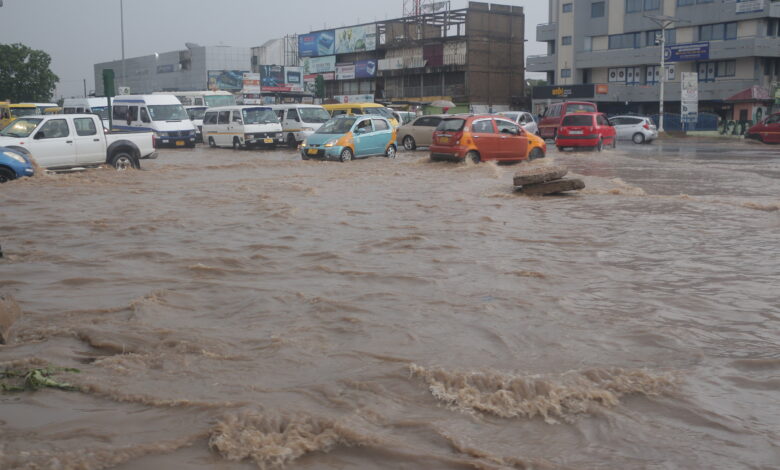
Local governance expert Amon Kotei has shed light on the root causes of Accra’s recurring flooding issues, pinpointing inadequate waste management and rapid population growth as the primary culprits. The city’s inability to effectively manage waste has resulted in clogged drains and waterways, significantly exacerbating flood risks. Meanwhile, the rapid population growth has put immense pressure on Accra’s infrastructure, including its drainage systems, which are struggling to cope with the demands placed upon them.
To mitigate flooding in Accra, Amon Kotei’s insights suggest that addressing waste management and population growth are crucial. Improving waste collection and disposal services, as well as investing in infrastructure to support the growing population, could help reduce the risk of flooding. This would require a multi-faceted approach, including the establishment of dedicated waste management departments within district and municipal assemblies. Currently, environmental health officers, who lack specialized training in waste management, are burdened with these responsibilities, highlighting the need for capacity building and training in this area.
Amon Kotei also emphasized the pivotal role of district and municipal assemblies in addressing the flooding problem, but noted that significant restructuring is needed to empower them effectively. Building permits and planning are supposed to be handled by assemblies; however, many assemblies lack the capacity to even assess structural drawings. This lack of capacity and authority hinders their ability to effectively manage urban development and mitigate flood risks.
Furthermore, Kotei highlighted the need for assemblies to have authority to regulate and protect river bodies. Currently, unchecked mining and pollution activities are contributing to environmental degradation, which worsens flooding. “We do not have any authority to manage our rivers,” Kotei stated, emphasizing the need for stronger regulatory frameworks to protect Accra’s waterways.
The challenges of urbanization are also a significant contributor to Accra’s flooding crisis. With approximately 1.5 million residents living in unplanned settlements, waste frequently ends up clogging drains and water bodies, creating a vicious cycle of flooding. Kotei emphasized that Accra’s overpopulation is exacerbating waste disposal problems, highlighting the need for effective urban planning and management strategies to address these issues.
To address these challenges, Amon Kotei advocates for a comprehensive approach that includes improving waste management infrastructure, strengthening the capacity of district and municipal assemblies, and investing in urban planning and development. By addressing the root causes of flooding and working to create a more sustainable and resilient urban environment, Accra can reduce the risk of flooding and create a better future for its residents. This will require a concerted effort from government, civil society, and the private sector, but the benefits of a well-planned and managed city will be well worth the investment.
In conclusion, Accra’s flooding crisis is a complex issue that requires a multifaceted solution. By addressing waste management and population growth, strengthening the capacity of district and municipal assemblies, and investing in urban planning and development, Accra can mitigate the risk of flooding and create a more sustainable and resilient urban environment. Amon Kotei’s insights provide a valuable roadmap for addressing these challenges and creating a better future for the city and its residents.
Story by: Ohemaa Adusi-Poku



